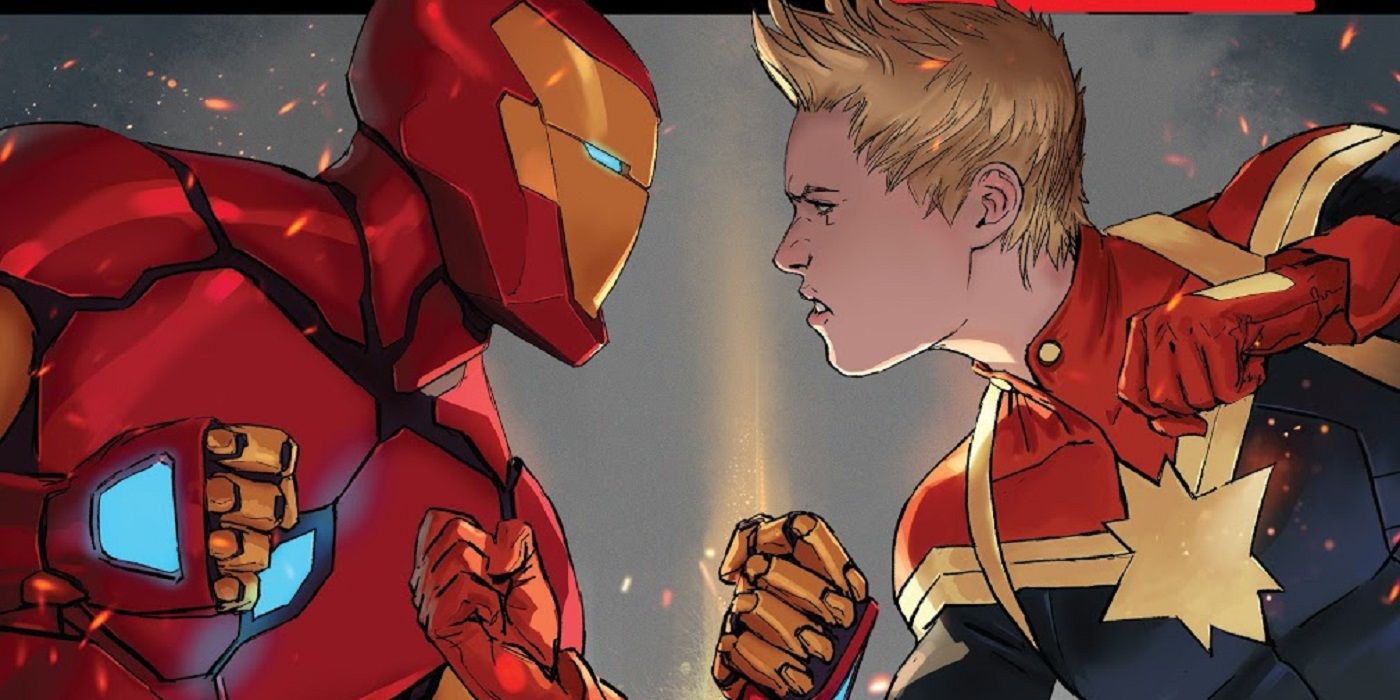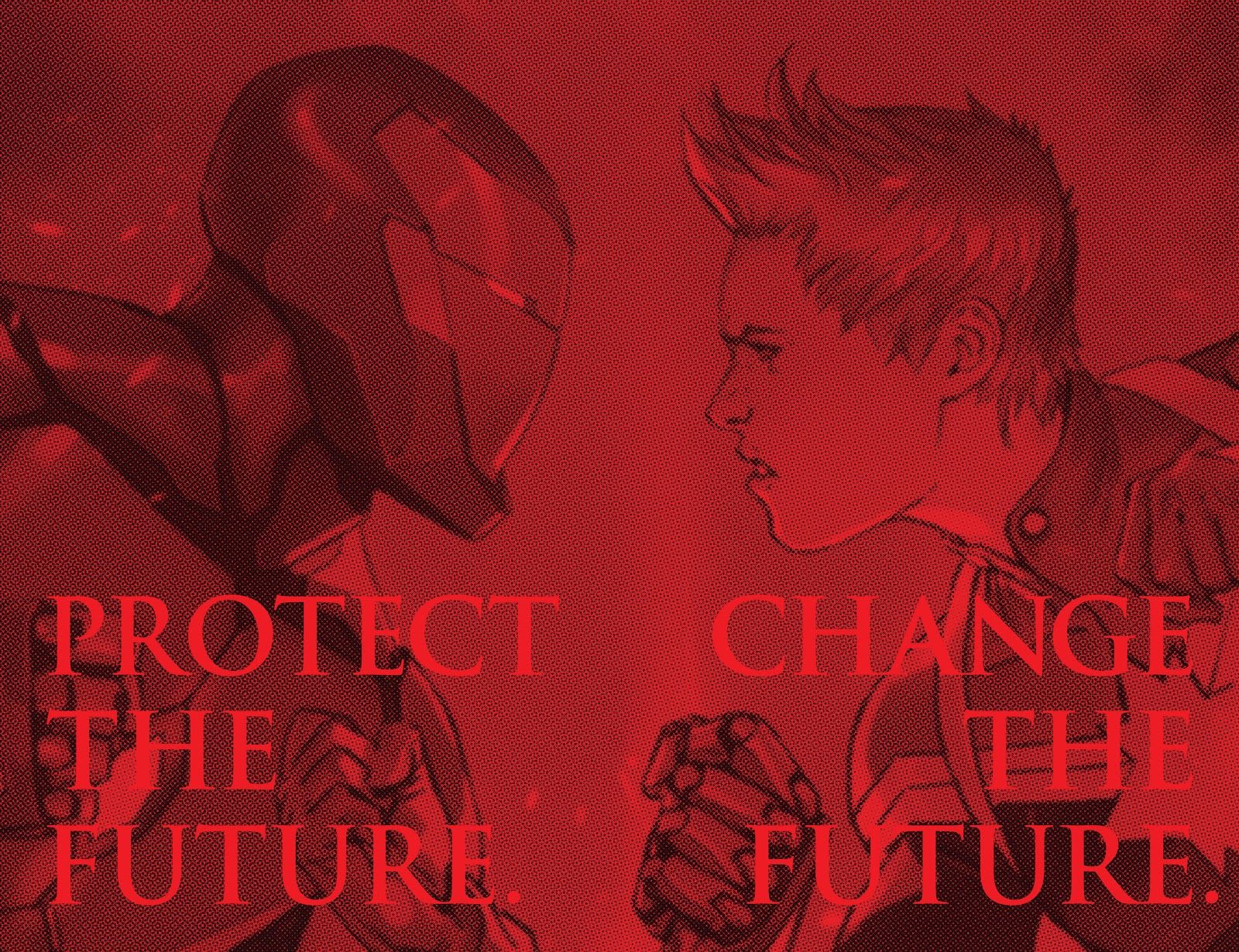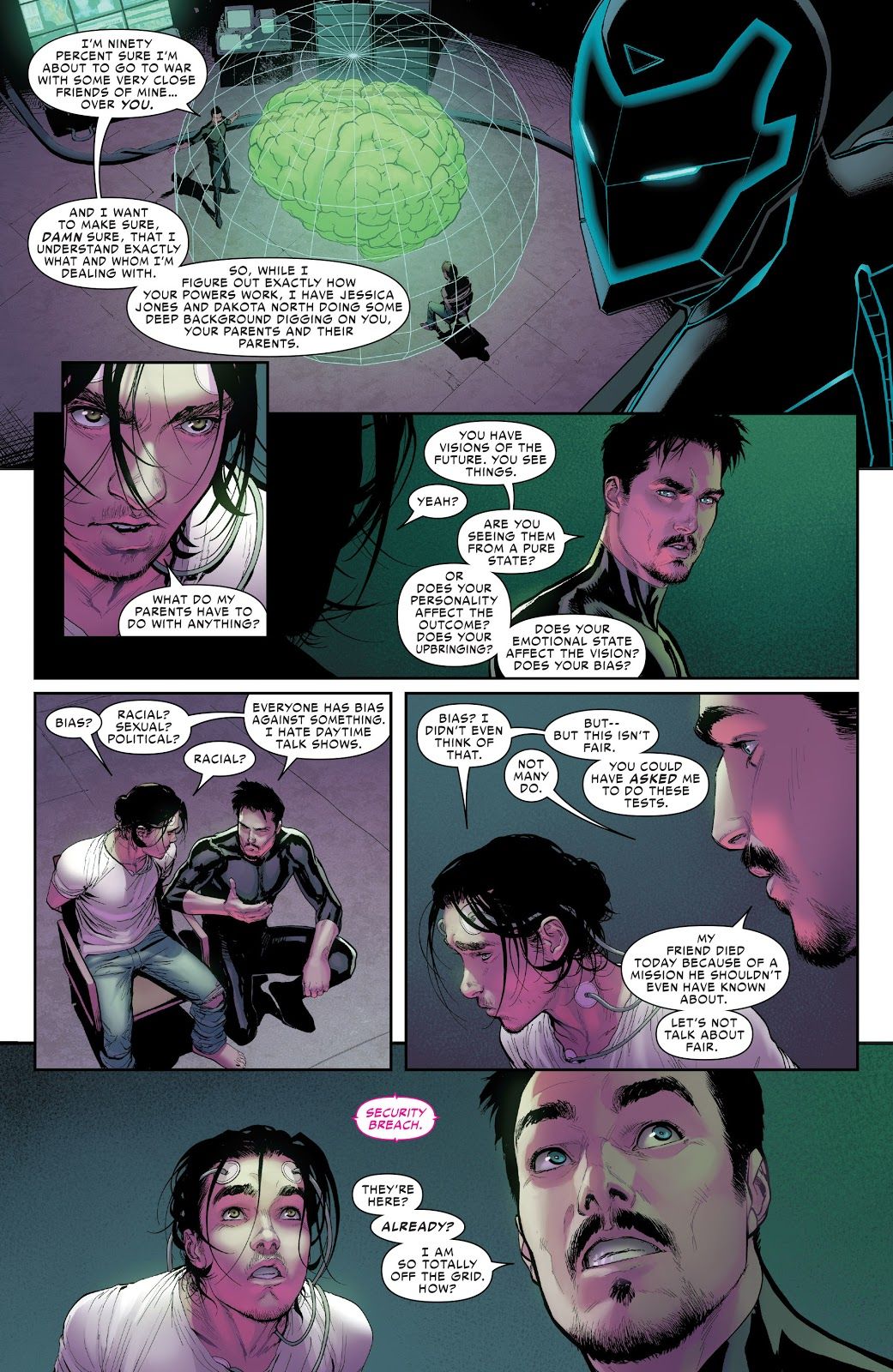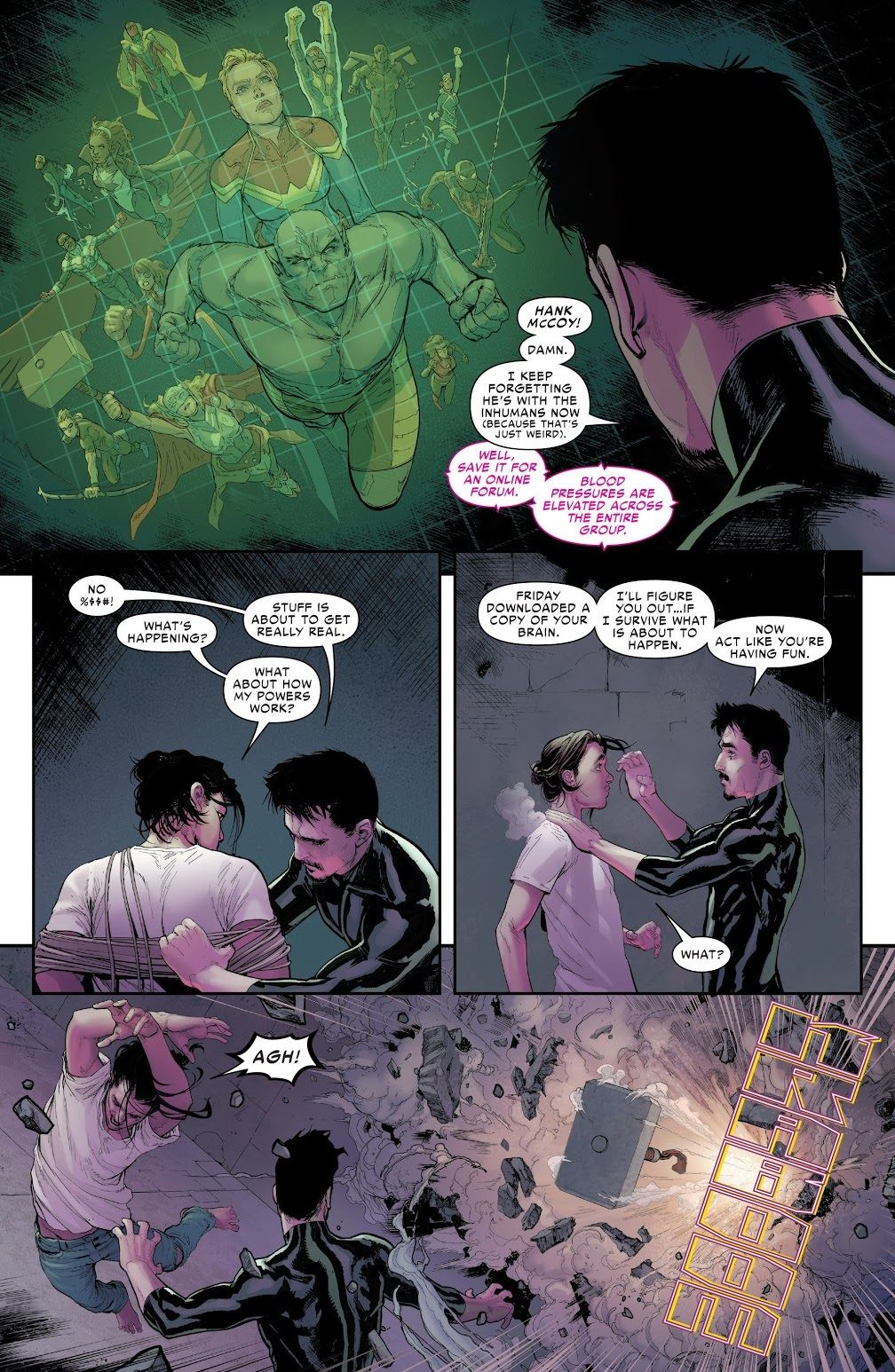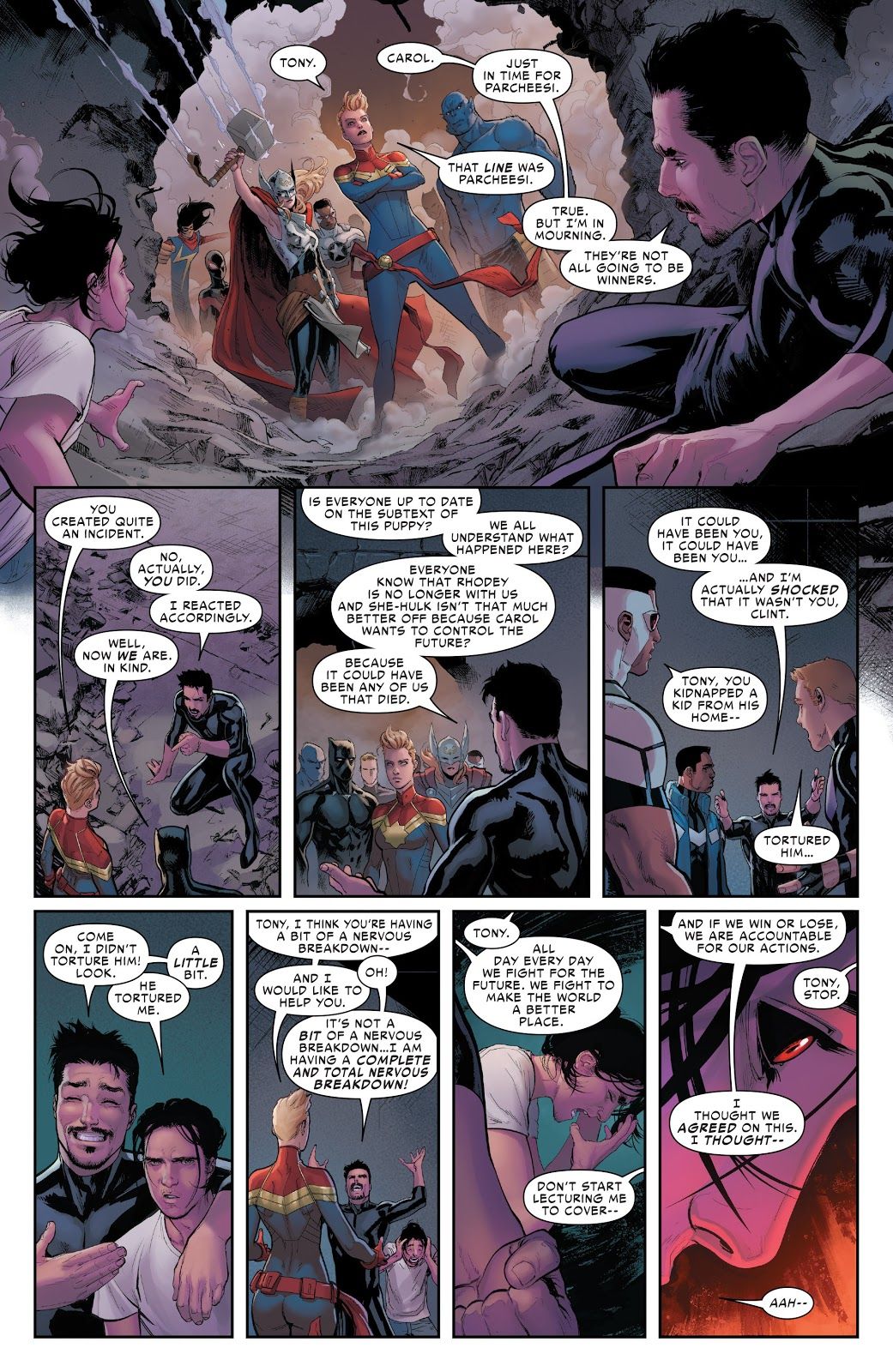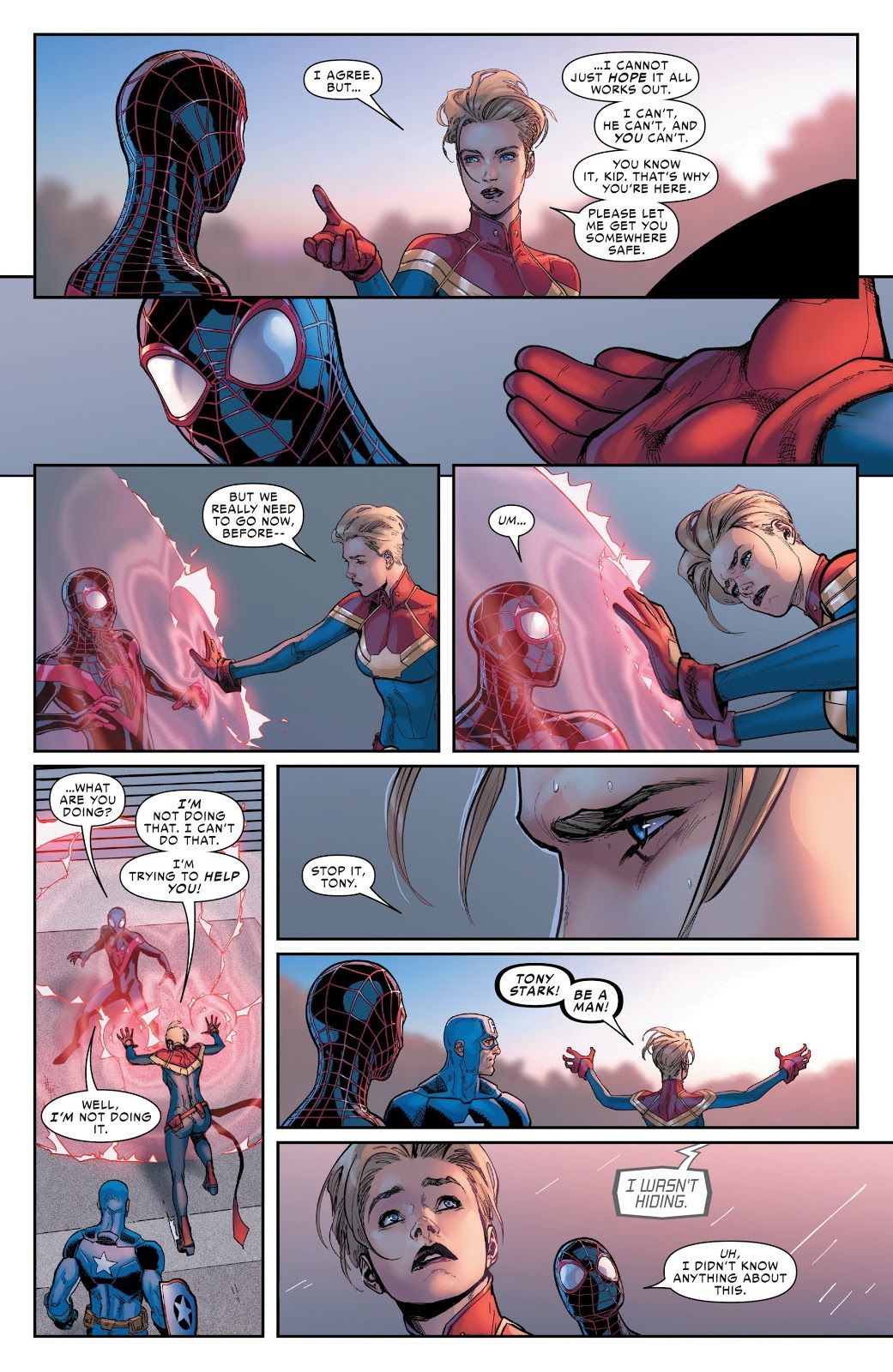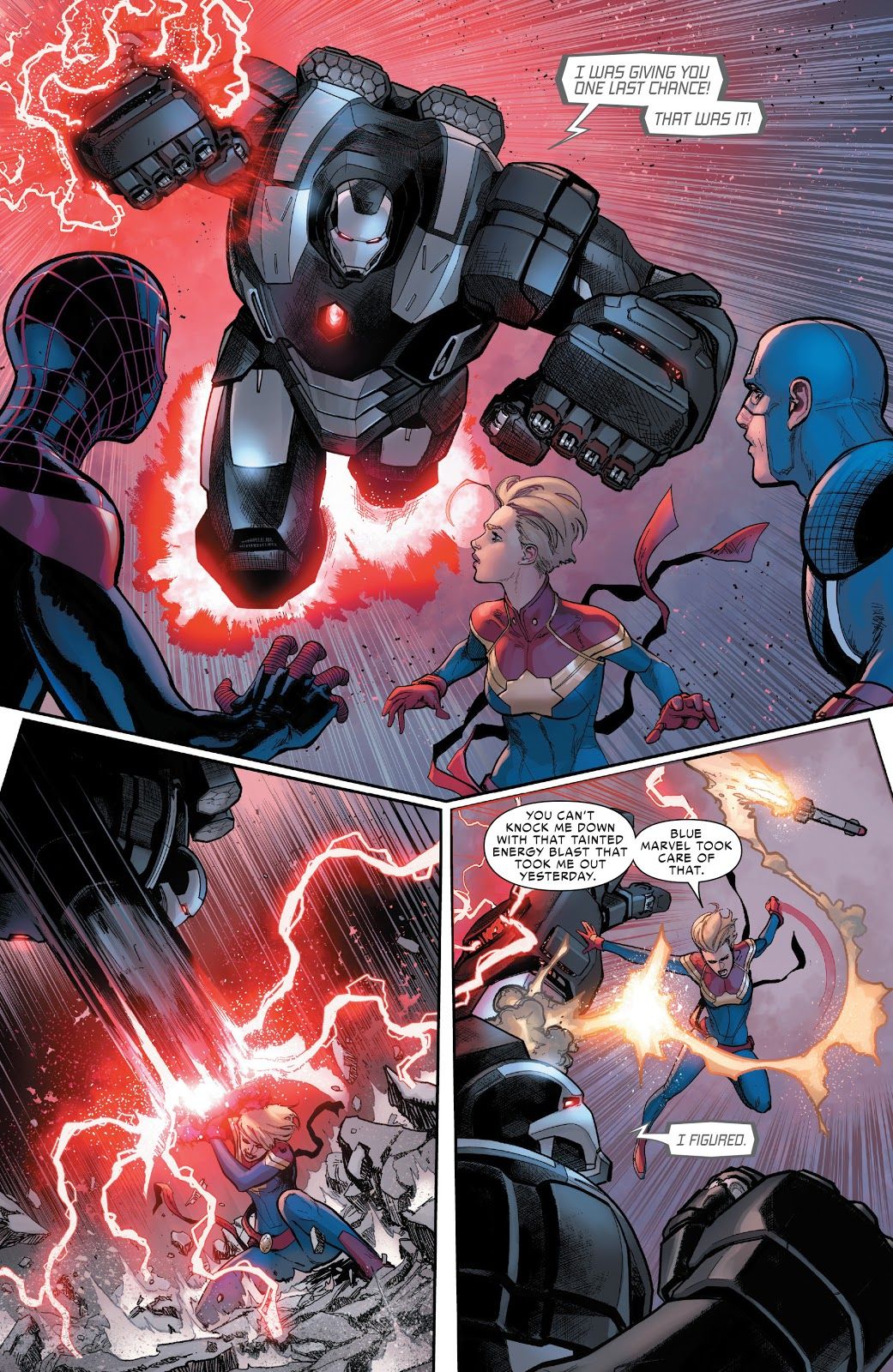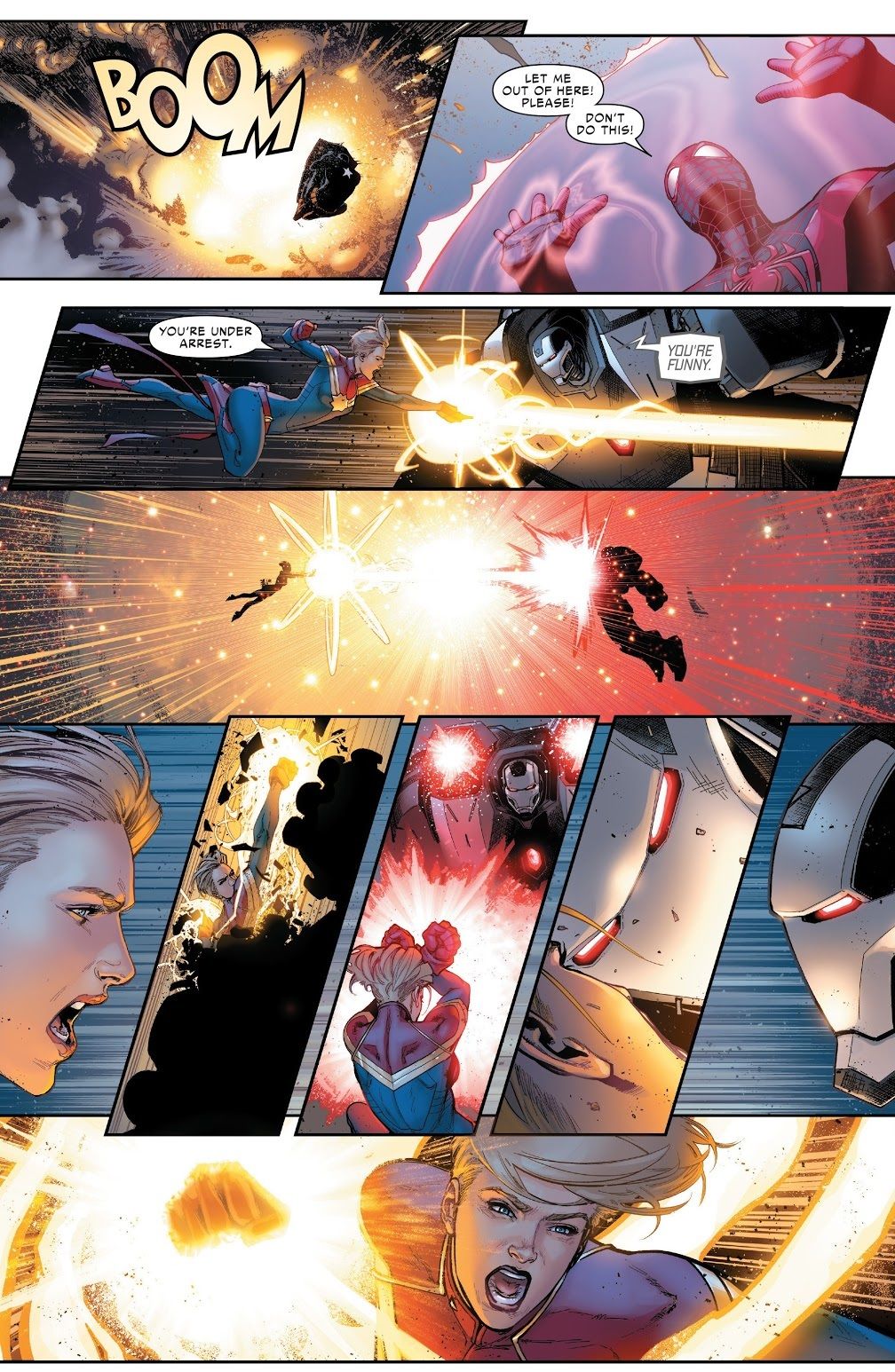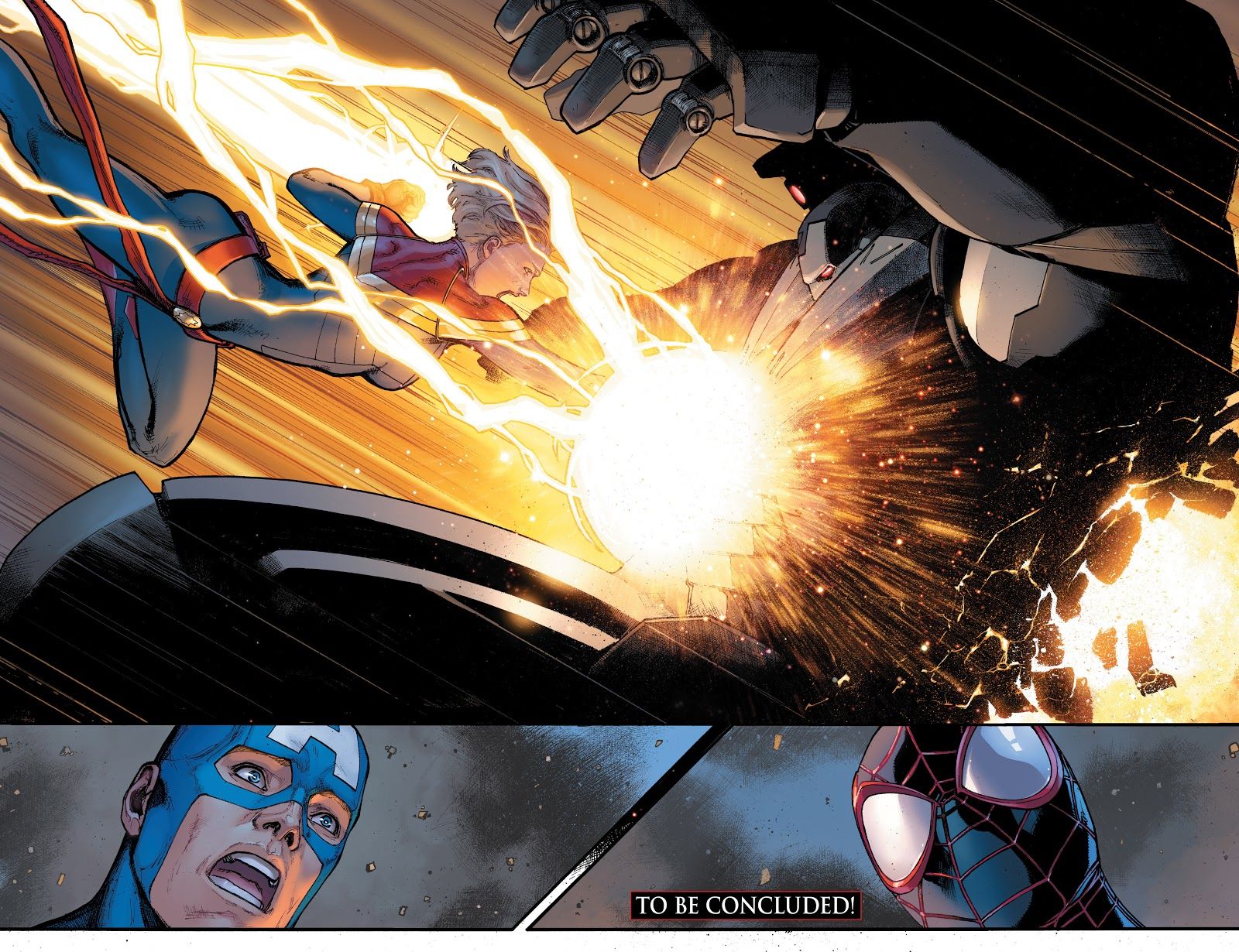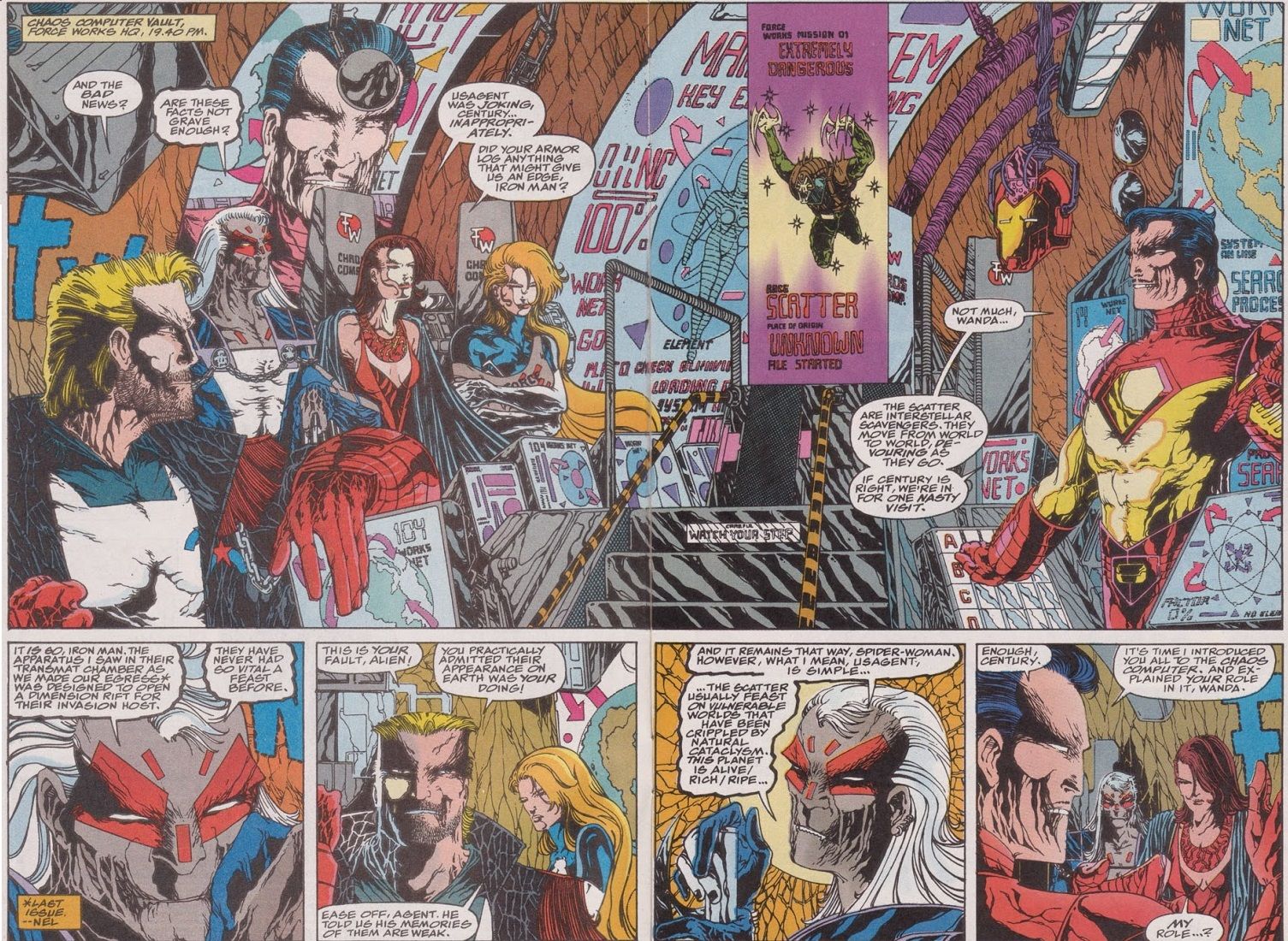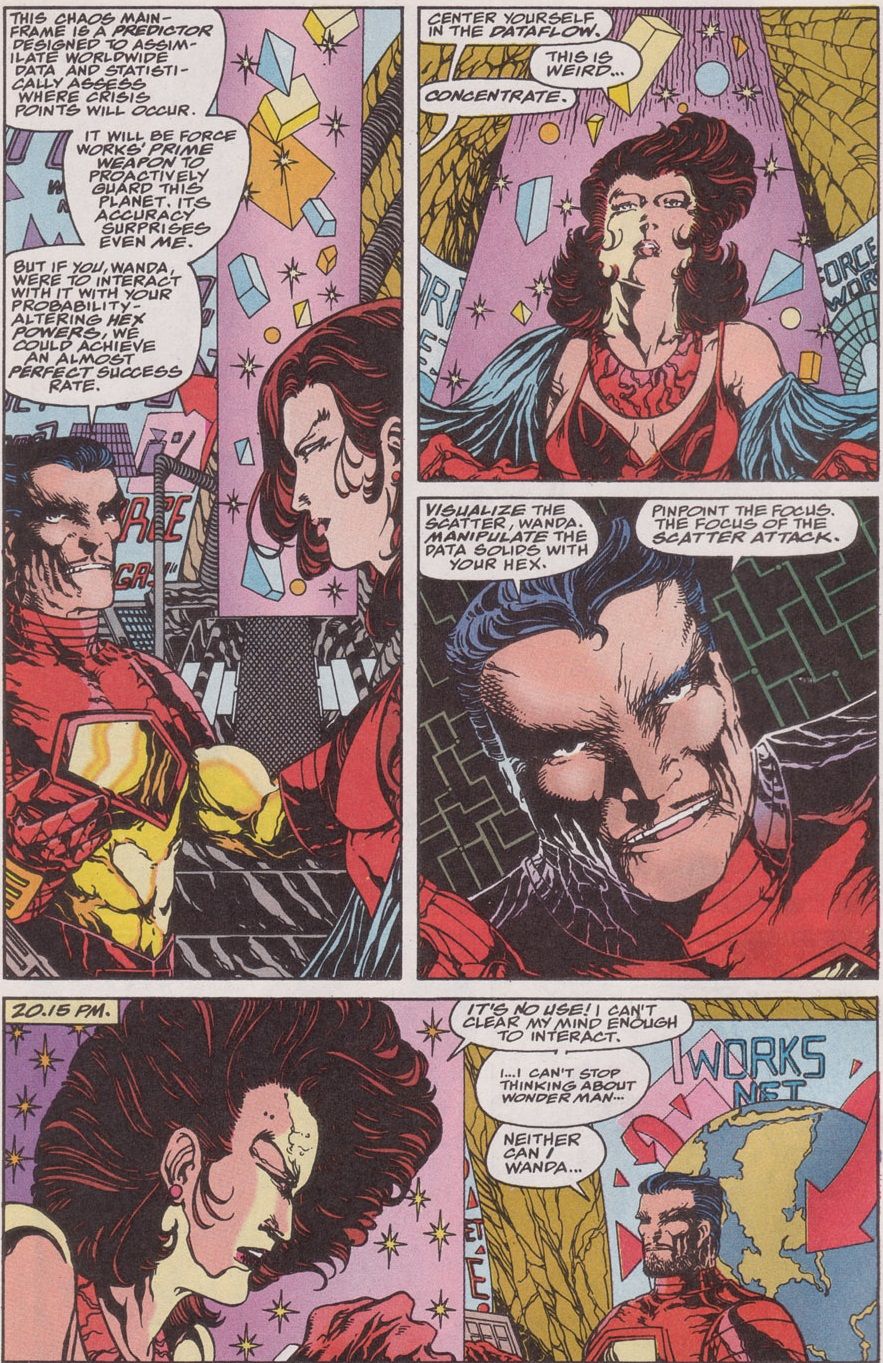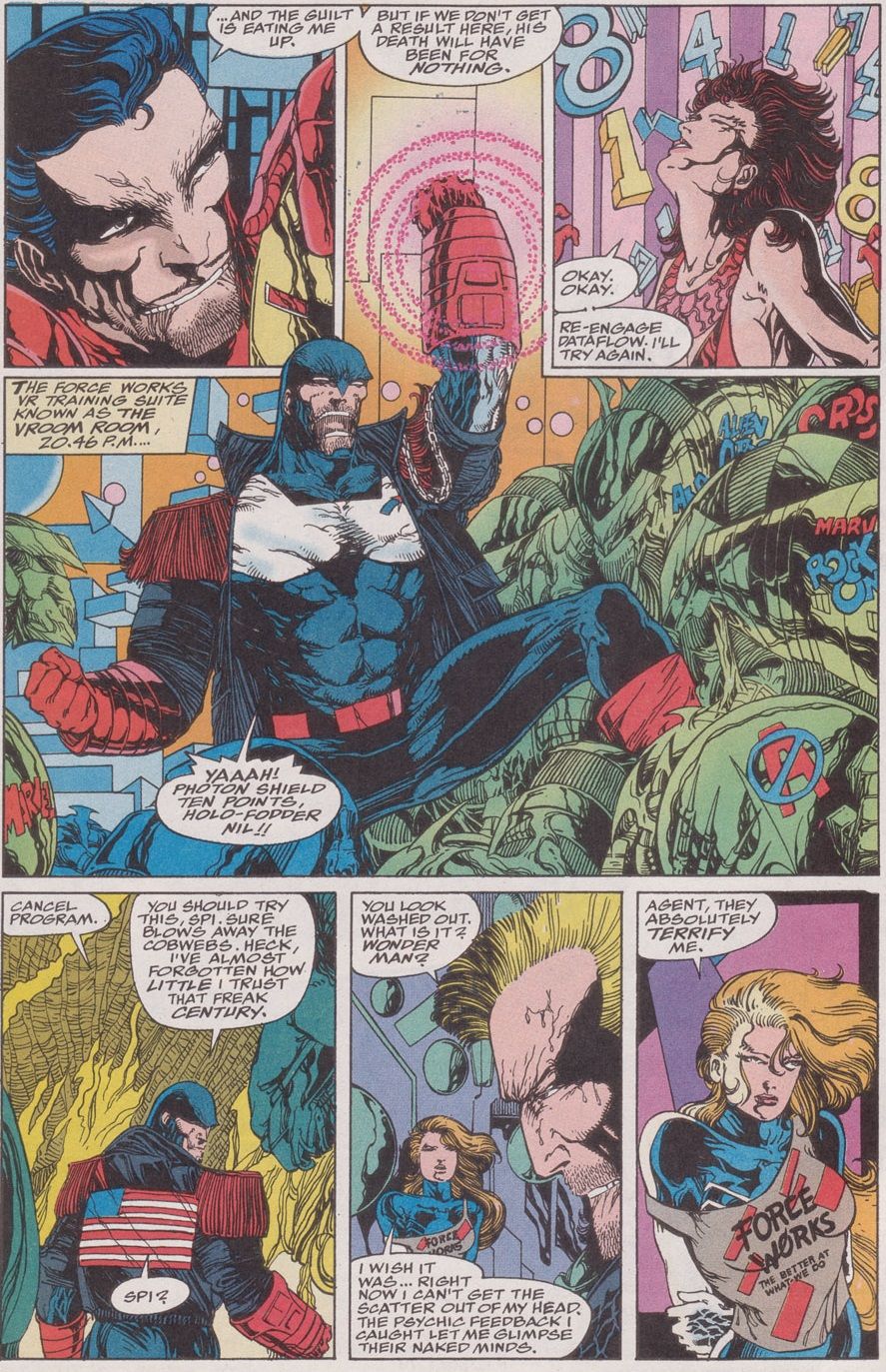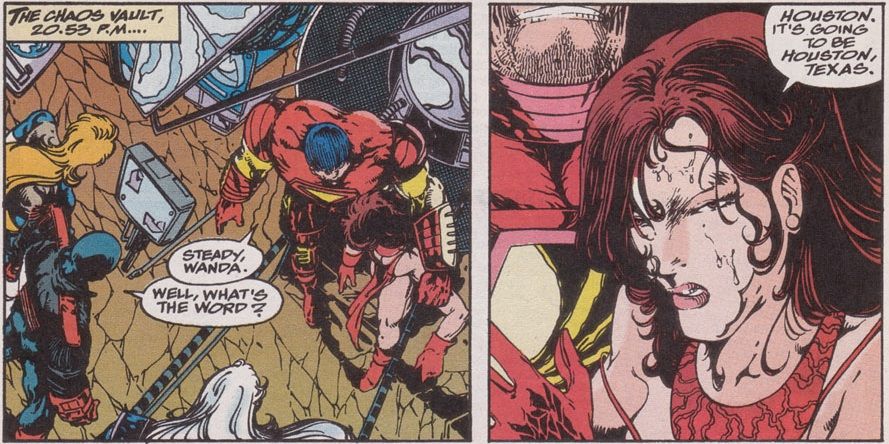This is Past Was Close Behind, a feature that spotlights moments, exchanges, etc. from older comics that take on a brand new light when read in concert with later comic books or events. Basically, stuff that looks hilarious in hindsight. Today, we look at how Iron Man's views regarding using future visions to handle crime have changed a lot over the years.
In the crossover event, Civil War II, things really seemed to boil down to a quick catch phrase for both of the main heroes that were involved in the story. For Captain Marvel, it was "Change the Future," as she now had access to an Inhuman named Ulysses who could predict the future, while Iron Man's was "Protect the Future," as Iron Man did not want anyone to do stuff based on Ulysses' projections...
That's the pithy nature of it all, but it naturally is a lot more complicated than that, as shown in the actual miniseries, Civil War II, by Brian Michael Bendis and David Marquez.
You see, Ulysses shows up and he has some eerily accurate predictions of the future and he helped the collective superheroes of the Marvel Universe come together and prepare themselves for a massive attack and, since they were right there when they needed to be, they were able to win the day and probably save the Earth.
However, another prediction by Ulysses led to Captain Marvel and a few other heroes, including She-Hulk and Carol's boyfriend (and Iron Man's best friend), War Machine, trying to take out Thanos and things did not go well and in the fight, War Machine was killed by Thanos and She-Hulk was put into a coma.
Iron Man, then, did not think that they should be trusting Ulysses' visions, as there could be things like bias worked into his predictions, and therefore, it is possible that the heroes are essentially doing the superhero equivalent of racial profiling, picking on people because Ulysses says that they WILL commit a crime, whether they actually did or not. Iron Man kidnaps Ulysses to test him out and when the other heroes catch up to him, he explains his problem with the whole Ulysses situation...
Things get crazier when Ulysses then sees a prediction, a prediction that everyone in the room got a taste of, that saw Bruce Banner, as Hulk, killing everyone. So the heroes go to see Banner and when Hawkeye sees Banner (in his mind) turn green (even though Banner had explained that he was cured at the time), Hawkeye kills him. Hawkeye is ultimately acquitted of murder charges.
Things get the craziest, though, when Spider-Man is shown in a prediction murdering Captain America (no one knows that Cap has secretly been replaced by an evil version of himself by a Cosmic Cube, so only the readers know that it is a real possibility that Miles might actually have to kill Cap at some point). Spider-Man decides to call the bluff of the prediction and go to the spot where the murder was shown to happen, Washington D.C. Cap goes there, too.
Captain Marvel tries to stop Spider-Man and Iron Man, in turn, tries to stop her. It does not go well for Iron Man...
Iron Man ends up in a coma and the whole thing is dropped when Ulysses ends up leaving Earth (as he evolves into another state of being).
Okay, so Iron Man was willing to die to keep Captain Marvel from acting on predictions of the future. Now, then, what exactly was Force Works about?
Page 2: [valnet-url-page page=2 paginated=0 text='What%20was%20Force%20Works?']
It is odd that the set-up for Force Works was such that the whole status quo of the book is not actually introduced until the third issue of Force Works (by Dan Abnett, Andy Lanning, Tom Tenney and Rey Garcia) which was a new team made up of the former members of the West Coast Avengers (Scarlet Witch, Spider-Woman, USAgent and Iron Man).
The concept is that Iron Man has come up with a computer that can predict where problems are going to be and by hooking Scarlet Witch's probability powers into it, it should accurately tell everyone about problems BEFORE they happen, so the Force Works team could be proactive superheroes, stopping the problem before it happens....
Now, were there other issues with Ulysses? Of course, this is not a flat out "Person said X now and Y then," but it is pretty close. Close enough for it to amuse me and really, at the end of the day, isn't that what this is really all about?
If anyone else has a suggestion for some hilarious in hindsight stuff, let me know by dropping me a line at brianc@cbr.com!

